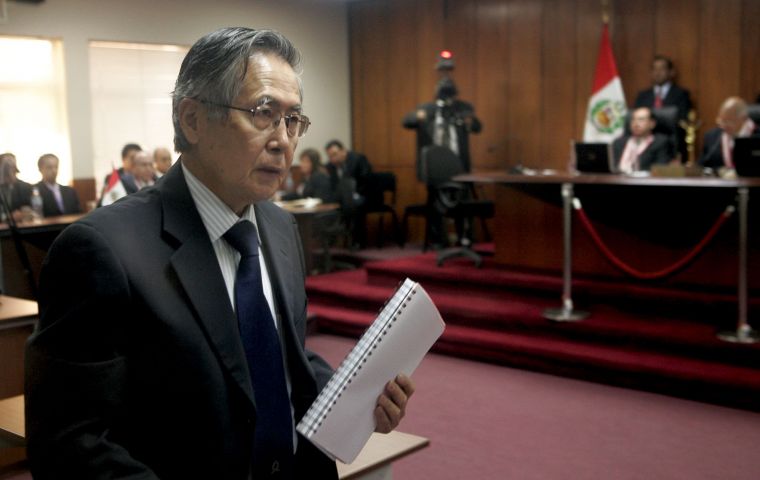MercoPress. South Atlantic News Agency
UN human rights experts condemn pardon of ex president Alberto Fujimori
 Experts include Agnès Callamard, the UN Special Rapporteur on extrajudicial executions; Pablo de Greiff, UN Special Rapporteur on the promotion of truth
Experts include Agnès Callamard, the UN Special Rapporteur on extrajudicial executions; Pablo de Greiff, UN Special Rapporteur on the promotion of truth Condemning the pardoning of former President of Peru, Alberto Fujimori, a group of United Nations independent human rights experts have said that the move undermines the work of the judiciary and the international community to achieve justice.
“It is a major setback for the rule of law in Peru: a humanitarian pardon has been granted to someone convicted of serious crimes after a fair trial, whose guilt is not in question and who does not meet the legal requirements for a pardon,” said the experts in a news release issued by the UN human rights office.
“We are appalled by this decision. It is a slap in the face for the victims and witnesses whose tireless commitment brought him to justice.”
The experts voicing their concern include Agnès Callamard, the UN Special Rapporteur on extrajudicial, summary or arbitrary executions; Pablo de Greiff, the UN Special Rapporteur on the promotion of truth, justice, reparation and guarantees of non-recurrence; and the Working Group on Enforced or Involuntary Disappearances.
In the news release, the experts stressed that the Peruvian President’s constitutional right to pardon people could not be seen in isolation from the international conventions ratified by the country.
“International human rights law restricts the granting of amnesties, pardons or other exclusions of responsibility in cases of serious human rights violations including extrajudicial killings and enforced disappearances,” they said, noting that a request of habeas corpus on Mr. Fujimori’s health condition was already rejected by the judiciary.
Fujimori was serving a 25-year jail term for serious human rights violations, including extrajudicial killings, enforced disappearances and kidnapping. His conviction had been hailed as a major achievement in the fight against impunity.
The announcement of his pardon by President Pedro Pablo Kuczynski, on December 24, has sparked protests in the capital, Lima, and elsewhere in the country.




Top Comments
Disclaimer & comment rules-

-

-

Read all commentsFailure to follow through on sentences does not act as much of a deterrent to future crimes. Why is this one person being let out, why not let everyone out. Perhaps we should only let out the wealthy, those with powerful friends or those from good, God fearing families.
Dec 29th, 2017 - 07:34 pm +5It should be a matter for the people. If the government wanted to do something that controversial they should have included it in their election platform.
Patrick my boy, write us another two thousand characters. We find your posts so enlightening...
Dec 30th, 2017 - 02:51 am +3Patrick Edgar
Jan 04th, 2018 - 12:02 am +3How did Spanish America become Spanish?
How did Argentina become a sovereign state and no longer a Spanish colony?
How did Argentina acquire the provinces Chaco, Formosa and Misiones?
How did Argentina acquire Patagonia?
Was it by using force?
Commenting for this story is now closed.
If you have a Facebook account, become a fan and comment on our Facebook Page!